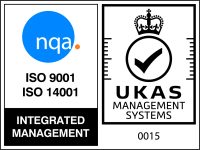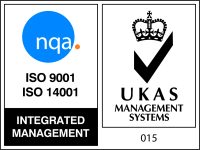In near constant use, train stations can pose a considerable challenge for hygiene professionals. While the task of cleaning a train station is indeed formidable, it is certainly not impossible. By aiming their focus at certain key areas, cleaners can efficiently and effectively manage any hygiene challenges and safeguard standards within a station.
Stick to a Schedule to Manage Busy Times and Busy Spaces
Given the nature and size of these kinds of facilities, a cohesive cleaning strategy is integral in maintaining station hygiene. But before undertaking any actual cleaning, a professional cleaner should first make a note of both a station’s busiest areas as well as its peak passenger flow times; after all, the busier a station is, the dirtier the premises will become.
For example, morning and evening rush hours could be especially challenging times for cleaners while toilet areas and waiting rooms will also likely present a concern. Likewise, large-scale one-off events – such as concerts, matches or games – can also prove to be challenging to station hygiene. However, once any busy times and spaces are noted, it is helpful – as CleanLink suggests – to create a rota that will allow cleaners to maintain a regular hygiene schedule.
But even with a rota or schedule firmly in place, the outlet notes that undertaking cleaning and disinfection protocols during finite blocks of time can be a real test for cleaning staff.
Examine Challenging Areas
Even outside of busy times, certain parts of a train station will always require vigilant attention. This is certainty true of toilet areas. As Network Rail suggests, these need consistent and regular cleaning, with staff taking care to ensure that hand washing facilities and toilet paper are always in adequate supply. In addition to a careful and consistent cleaning regimen, station and facilities managers may even wish to consider additional precautions such as antibacterial coatings for ceramic tilings, a preventative measure undertaken by Network Rail. Bins – in toilet areas, waiting rooms and on the station concourse – should always be emptied promptly and, as in any other kind of facility, high-touch surfaces should be cleaned and disinfected in order to prevent cross-contamination.
Station floors can also pose another considerable challenge to cleaners. In addition to tackling spillages of all kinds – as well as biological hazards like urine, feces and vomit – cleaners must also mitigate the impact of inbound ice melt and trace residue of corrosive deicers into stations. To this end, while the Rail Delivery Group acknowledges the effectiveness of rock salt as a deicer, it also accepts that this substance can be very damaging to surfaces, including floors.
CleanLink suggests that, in order to protect against the corrosive effects of rock salt and deicers, cleaners place mats at strategic points at station entrances to catch inbound ice melt and also regularly clean any deicer residue. For larger spaces like stations, European Cleaning Journal admits that conventional mopping may not be efficient and suggests that, if possible, facilities managers consider utilising robotic cleaners.
Consider Fragrancing Options
Finally, in addition to maintaining a rigorous and consistent hygiene rota, station managers and facilities teams may also want to consider the use of fragrance in order to enhance passenger perception of station cleanliness. Effective in any high-traffic or frequently used space, Cleaning Maintenance & Management explains that scents can both actively help to freshen and even mask foul smells. If choosing the former option, cleaners should select a scent containing an odour eliminator, which can mitigate the impact of foul smells in an enclosed space. In terms of dispensing options, it may also be worth considering an automated system to continuously and effectively scent a space within a station.
As frequently used and high-traffic spaces, rail stations can present a true challenge to cleaning professionals. Yet, with careful and consistent strategies in place, it is possible to maintain hygiene standards and therefore, the wider health of the travelling public.
How can we help?
Paragon has unrivalled experience of developing and delivering robust cleaning solutions for our customers. Our portfolio of cleaning chemicals has been carefully curated for the transport sector through a combination of sustainable sourcing and industry expertise.
Our team of chemists, at the forefront of innovation, has developed formulations that deliver unparalleled cleaning performance. It is due to this that with a Paragon product, you can trust it will deliver superior performance, every time.
Our hands-on account managers are available to provide support and guidance when it is required. So we work with you and your team to develop products and processes to address specific challenges your train station has.








